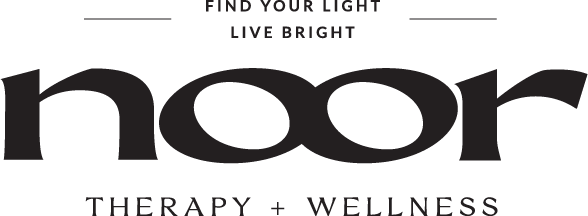The Weight of Weight
Take a moment to envision it: you wake up, do your morning routine, get dressed, and go enjoy your day. Maybe you go to lunch with friends or spend time with family, perhaps you go on a solo trip to the museum or the beach, or maybe you go to work. After a day of activities you get home and take some time to relax, or get some light chores done. As you crawl into bed, it finally clicks, “Wait! I haven't thought about my weight or how I look all day!”
You thought this moment was near impossible, but now you see the growth. You no longer struggle to pick an outfit in the morning and feel the need to hide yourself; you're able to go about daily activities without worrying about how others perceive you. Food is no longer something that causes fear; instead, you're able to listen to your body and nourish it without thinking about how this translates to calories or weight.
In recent years there has been a shift towards more body-positive discourse. However, the roots of negative body image, weight, and fatphobia have shown just how deep they run. Navigating a society that continues to perpetuate stereotypes and judgments about weight, whether consciously or unconsciously, can be highly dysregulating.
In my personal and professional experiences, I have seen people across the entire gender spectrum express some form of self-judgment, shame, or internalized fatphobia. I have seen some cis and trans men struggle with not having a “masculine enough” body. I have also seen some cis and trans women who struggle with being the “right" amount of thin, yet curvy. As a male presenting non-binary person, I myself have felt I don’t present androgynously enough. Weight has become a tool used to push a societal standard of “perfection.” Yet these standards do not take into account things like age, genetics, hormones, or the vastness of shapes and sizes in which we exist as a species. There is no “right” way to present yourself or to be yourself.
Looking at history helps us recognize how we as a society came to internalize fatphobia. A great read on this topic comes from Dr. Sabrina Strings titled Fearing the Black Body: The Racial Origins of Fat Phobia. Dr. Strings discusses emerging racialized beauty standards in the Renaissance which contributed to the association of larger bodies with Black women. She then goes to explain the influences of the transatlantic slave trade which led to the development of racist ideologies that framed African people as inherently gluttonous and sexually promiscuous. She also takes time to explore topics such as the spread of “Protestantism” (which contained religious rhetoric suggesting that “overeating was ungodly”), scientific racism, and the creation of the BMI (which was created to measure the “ideal” white man). As we take steps to dismantle these historical ideas and the structures that support them, it is important to address the roots of fatphobia in racism which gave rise to the aesthetic and cultural “standard” of thinness and whiteness.
If you have experienced judgment or self-judgment about your weight or appearance I encourage you to take a moment to look at what continues to be the driving force of that judgment. A great way to begin this process may be to ask yourself the following questions:
When did you first become aware of a body “standard?”
How did this awareness make you feel?
What led you to uphold and internalize these standards?
Are these “standards” that you believe in and want to uphold?
Taking the time to process and answer these questions can support you in better understanding your own judgments and create the foundation upon which to build body acceptance and positivity. When we begin to deconstruct these stereotypes and recognize the histories for ourselves, we actively become a part of building new standards that are open and accepting of all. We begin to see that our acceptance of ourselves as we are is a powerful act of resistance, as well as one that brings a sense of peace and freedom to our lives.
Many bipoc, queer, and gender expansive people who struggle with their body image struggle to find a therapist who can honor and integrate all of the history and current societal and cultural factors impacting how we feel about ourselves and our bodies. If this has been your experience, reach out today for a free consult to see how bringing this awareness into the work can shift things.
Written by: Jean Donabedian, AMFT, APCC


